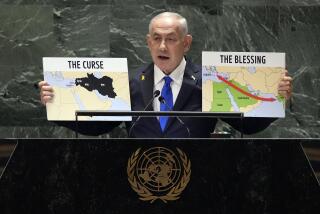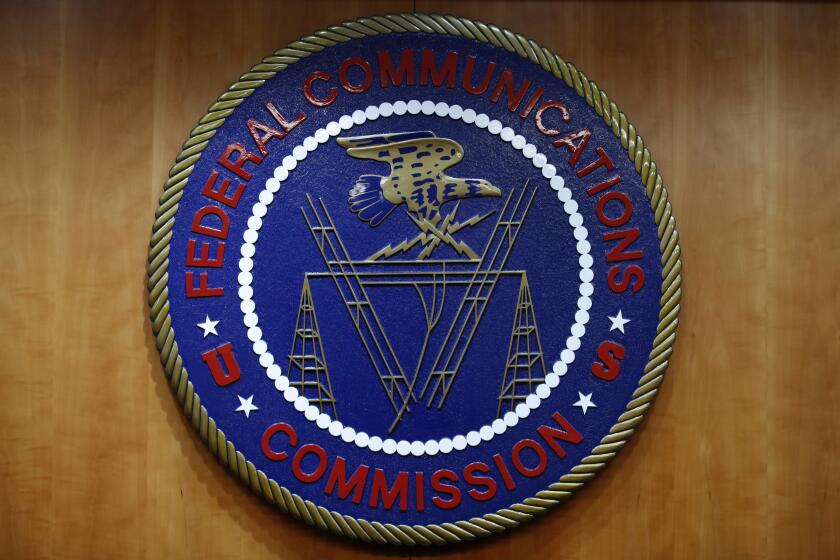U.N. -- Time for a Deadline
The United Nations risks irrelevance unless it promptly sets a date on which it will use military force against Iraq if that nation does not disarm.
Piling fact upon fact, photo upon photo Wednesday, Secretary of State Colin L. Powell methodically demonstrated why Iraqi dictator Saddam Hussein remains dangerous to his own people, Iraq’s neighbors and, potentially, the Western world. Powell reminded the U.N. that the responsibility is Hussein’s alone for proving that he has destroyed the weapons of mass destruction his nation systematically acquired and that he has abandoned all efforts to develop more.
Hussein’s chemical attacks on Iranian soldiers and Kurdish civilians showed that he will use any weapon, no matter how horrible. After Iraq’s defeat in the Gulf War, U.N. inspectors learned that Hussein still had huge supplies of botulinum toxin, VX nerve agent, anthrax and other weapons materials. Powell also noted that Iraq had worked secretly but aggressively to build a nuclear bomb.
Iraq says its weapons fixation is behind it. But Powell used satellite photographs, taped intercepts of Iraqi soldiers’ conversations and what he said was the testimony of defectors to persuasively suggest that Hussein still has weapons and the means to make more. Powell also offered solid evidence that Hussein has sophisticated ways to hide whatever he has from the 100 inspectors trying to scrutinize a country the size of California.
Although Powell did not directly link Baghdad to Al Qaeda’s Sept. 11 attacks on New York and Washington, he did spell out what he characterized as clear links between Iraq and Al Qaeda. We were not convinced of the Al Qaeda connection. But we agree with Powell that as long as Hussein has anthrax or chemical agents there’s a chance some terrorist will use them -- and that it’s irresponsible for the United Nations to ignore Hussein’s history.
President Bush, in his September speech to the U.N. General Assembly, warned that the United Nations had been blundering down the path of the League of Nations, which collapsed in the 1930s when it repeatedly failed to challenge nations’ aggression. Bush’s U.N. speech helped spur the Security Council to pass Resolution 1441, which demanded yet again that Hussein explain precisely what he has done with his weapons and weapons plants and that he give inspectors unfettered access to make sure he’s not lying.
Since then, the U.S. has stationed tens of thousands of troops in the region, with the total expected to be 150,000 or more by the end of February. Bush is threatening to attack Iraq without the United Nations, backed only by the growing coalition of nations that have offered support. The U.N. can spare the world that undesirable option by showing a resolve that is long overdue.
First, it must set an inviolate deadline. Hussein has smirked at and dodged U.N. resolutions for more than a decade. The chief U.N. weapons inspector, Hans Blix, and the head of the International Atomic Energy Agency, Mohamed ElBaradei, reported last month that Iraq remained recalcitrant. They will be back in Baghdad on Saturday and will report their latest findings to the Security Council on Feb. 14.
The United Nations must then give Hussein one final chance to avoid war -- by complying or fleeing -- and be ready to launch missiles, planes and troops if he again disregards or disrespects the world’s clear disarmament demands.
More to Read
Sign up for Essential California
The most important California stories and recommendations in your inbox every morning.
You may occasionally receive promotional content from the Los Angeles Times.










